Strengthening research, technological development and innovation
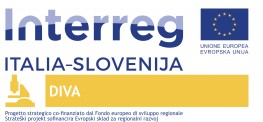
Promoting innovation capacities for a more competitive area
The overall objective of the project was to create an ecosystem of cross-border cooperation in which social and technological innovations for the future society will emerge.
The basic intention was to improve cross-border cooperation between Italian and Slovenian innovation platforms, educational institutions and small and medium-sized enterprises. We paid particular attention to the development and implementation of methodologies to facilitate and encourage collaboration between creative and artistic individuals or organizations and SMEs. Integrating an artistic mindset and art-thinking approaches into innovation processes enabled the flow of visionary ideas into technological, commercial and social innovations.
All organizations from the Interreg ITA-SLO area interested in various opportunities for cooperation within the DIVA project were invited to contact us (info@diva-borderless.eu) or to directly evaluate their potential and readiness for ART - BUSINESS collaboration through the web questionnaire - DIVA AAT: http://diva-borderless.eu/en/aat/.
On the website, https://diva-borderless.eu/it/ are available training materials used in the training of Innovation Catalysts and information on DIVA HUBs.
The basic purpose of the DIVA project was to create an innovation environment related to the economy (SME), which will successfully perform on the global market in the field of digital transformation and smart technologies and communities. Within the framework of the project, we established ecosystem connections between existing and newly established innovation platforms in which the co-creation of economy, art thinking, design thinking and various social initiatives took place.
By mapping, analysing, modelling and piloting, we enabled the inception of an innovation, production and user ecosystem, in which chain structures were established in which different chain-rings cling innovators with the economy, so that the flow from idea to a verified and practical solution is as fast and long-term successful (sustainable) as possible.
Creating cross-border ecosystem connections is seen as an opportunity to connect and develop the capacities of advanced technology companies and technologically literate social groups that will take the lead in raising the readiness level of traditional industry and mainstream society to adopt the principles of digital transformation and the circular economy.
In the first phase of the project DIVA, we created the conditions for a better understanding of the innovation dynamics in which we collected, systematized and analyzed various examples of collaborations between intermedia art, creative practices and the economy. In this way, we created methodological frameworks for establishing innovative development platforms that will take part in technological and social innovations for the society of the future.
In the second phase of the project, we established regional innovation hubs that were linked to interested SMEs. Here we developed methodological approaches for cooperation with modern and traditional companies that were able to participate in innovation protocols to address their needs. At the same time, we led a series of support activities to create a participatory environment for individuals and social groups, which were sensitized and educated for quality and participatory coexistence with new high-tech solutions.
The third level of the project was the realisation of 21 pilot projects with which we tested the cooperation between individual actors in the innovation, development and application processes regardless of whether the results of pilots were technological application or social innovation. In this regard, it is important to emphasize that due to their experimental and developmental nature, pilots were not necessarily directed towards actual results on the market.
CONCLUSIONS
The DIVA project is the launch of activities that aim at successful cooperation between representatives of business and the cultural and creative industries. More new projects addressing the theme of cooperation between SMEs and CCIs are needed to achieve lasting effects in the cross-border area. Cooperation between the different areas and partners is essential and necessary to bring satisfaction and positive changes in the cross-border area.
Cross-border activities have been suspended for the 2020-2022 pandemic and DIVA results need to be proofed ad tested in a newly funded project. It is the cross-border dimension, which is essential for the project, that has suffered the most, as can be seen in the Validation Report on the methodology used (DIVA Collaboration model) and on the pilot actions.
The DIVA Cooperation Model is one of the main documents of the project. It is a rich document that is intended to serve as a basis or starting point for projects and actions that promote creative innovation and the introduction of Design and Art thinking approaches in innovation processes in the economy.
In view of the long-term effects, it would be important to broaden and evaluate the profile of the innovation catalyst, the person with a creative mindset and a production-oriented attitude who can boost creativity in traditional SMEs. The knowledge of innovation catalysts on how to innovate creatively should be shared in formal and informal ways and the insights transferred to other target groups.
The call for pilot projects represented an important best practice that could be used in future projects, despite legislative differences between the two countries which caused some initial problems. The call provided an opportunity for traditional companies and organisations from the cultural and creative sectors to work together, while also encouraging further development for those still sceptical and reluctant to engage in such cooperation.
The assistance and guidance role of DIVA HUBs in strengthening cooperation between traditional SMEs and creative companies and/or professionals is essential. HUBs should continue to act as centres of creative, entrepreneurial and innovative activity, offering individuals and collectives a stimulating meeting environment and opportunities to create concrete innovative products or services. It is almost essential that DIVA HUBs are involved in other projects as spaces for socializing, networking, experimenting and innovating in order to address the challenges of today's society and the local cross-border environment.
The best practices of the call and cross-border cooperation could be important results to be used in a future project.
The Nova Gorica-Gorizia European Capital of Culture 2025 represents another opportunity to involve the DIVA partnership in activities related to GO2025!
The partnership involved the 15 project partners and an associated partner.
The presence of 15 partners was necessary to best ensure the principle of greater cohesion of the program area through a balanced territorial impact of all the actions that contributed to activating processes of replicability and capitalization of interventions throughout the program area. The complexity of the project intervention, its innovativeness and the need to involve a wide range of skills and professionalism justify the number of bodies involved.
The lead partner and the 14 project partners are presented below.
The project has involved the following associated partner: Governmental Service for Development and European Cohesion Policy, Slovenia.
Lead Partner
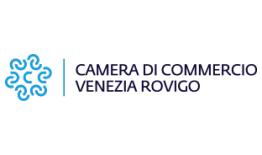
Project partner 1
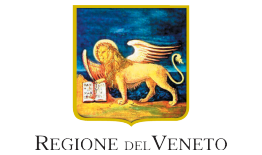
Project partner 2
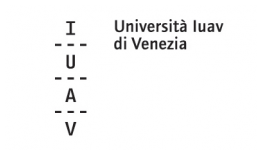
Project partner 3
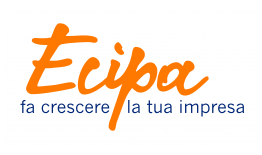
Project partner 4
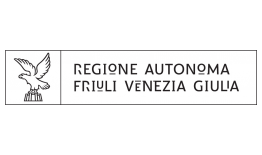
Project partner 5
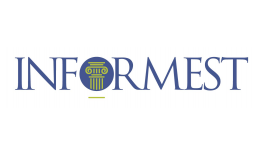
Project partner 6
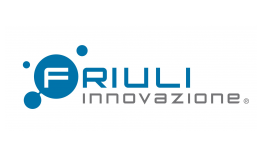
Project partner 7
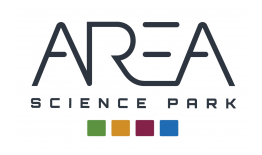
Project partner 8
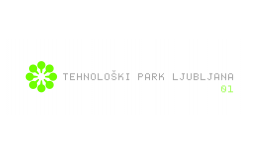
Project partner 9
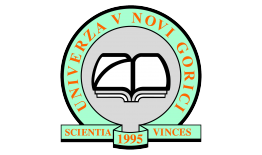
Project partner 10
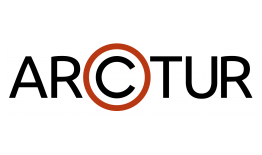
Project partner 11
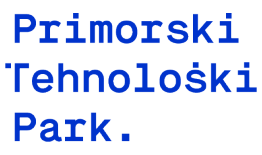
Project partner 12
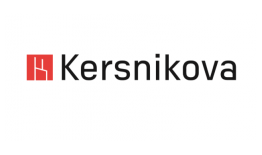
Project partner 13
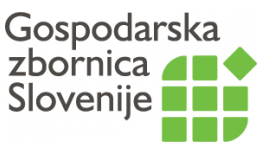
Project partner 14
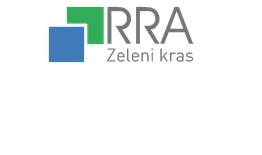
| DIVA poster DIVA_poster_A3_IT_May19.pdf ( 6 bytes, published on 17 June, 2019 - 08:22 ) | |
| DIVA leaflet Flyer_game_v04.pdf ( 11 bytes, published on 2 September, 2019 - 11:20 ) | |
| DIVA rollup DIVA_rollup_June19_preview.pdf ( 6 bytes, published on 18 October, 2019 - 10:56 ) | |
| DIVA leaflet 2 DIVA_HUB promotion_leaflet2.pdf ( 3 bytes, published on 11 January, 2021 - 09:37 ) | |
| DIVA Cooperation model - executive summary DIVA Cooperation Model_eng.pdf ( 981 bytes, published on 21 May, 2021 - 11:54 ) | |
| DIVA Pilot projects catalogue DIVA_Pilot Projects Catalog_ITA_SLO.pdf ( 2 bytes, published on 3 December, 2021 - 09:46 ) | |
| DIVA Cooperation model presentation DIVA Cooperation Model_presentation_eng.pdf ( 282 bytes, published on 17 December, 2021 - 09:57 ) | |
| DIVA HUB Catalogue DIVA HUB_Catalog_ENG.pdf ( 3 bytes, published on 20 December, 2021 - 12:00 ) | |
| Event DIVA borderless - invitation DIVA borderless_invitation.pdf ( 96 bytes, published on 3 March, 2022 - 15:54 ) | |
| DIVA Final event - invitation and agenda DIVA_FINAL Event_AGENDA.pdf ( 260 bytes, published on 18 May, 2022 - 10:33 ) | |
| DIVA final brochure - presentation of the DIVA pilot projects DIVA_Booklet.pdf ( 4 bytes, published on 25 July, 2023 - 12:46 ) | |
| DIVA tool kit & methodologies DIVA Toolkit and methodologies.pdf ( 103 bytes, published on 25 July, 2023 - 12:46 ) |
The three main objectives pursued during the DIVA project are:
Below is a brief summary of the actions taken.
In September 2019, under the guidance of the IUAV University of Venice, the DIVA project partnership conducted an in-depth analysis of the current situation of the target groups in the areas involved. By means of mainly qualitative research, an attempt was made to identify and to a certain extent also to assess the characteristics that are considered necessary both by the companies and by
the various creators so that they can actively cooperate with each other. The first newsletter was sent out with a presentation of the DIVA project and ongoing activities. The first video presentation of the DIVA project was released.
The focus was on collecting, systematizing and analysing examples of existing collaborations between intermediate art, creative practices and enterprises throughout the ITA-SLO Interreg programme area. This was the starting point for the development of methodological frameworks for the planning of platforms and environments for the development of innovation and the Collaboration Model, for the promotion of new ways of dealing with the problems of today's society and economy, and for raising social awareness of the value of artistic innovation.
About 100 interviews and thematic seminars were conducted to identify the needs of interested users and to assess the readiness of individual organisations in the arts, culture and business sectors to cooperate.
SWOT analyses were carried out. The results and key findings were presented at dedicated seminars on the Italian and Slovenian side of the Interreg area.
An automated assessment tool - AAT was also developed to support interviews, enabling interested organisations to assess their potential and readiness to participate in DIVA project activities.
The second digital newsletter was developed and distributed in February 2020.
The kreaDIVA! event was held in Ljubljana to present the project and some of the results already achieved to the public, including the results of the SWOT analysis of the current situation and some existing good practices, as well as the DIVA project's 'Collaboration Model', which was also illustrated through guided workshops aimed in particular at operators in the cultural and creative sector.
In June 2020, the project partners continued their work, adapting to the new conditions imposed by the pandemic measures, coordination meetings were held by means of webinars. The latest version of the DIVA cooperation model, which includes methodologies and tools for the further implementation of project activities, was updated and refined, with the aim of cross-border connection of Cultural and Creative Industries and Enterprises (SMEs) in the field of creative innovation and innovative project development. In addition, activities concerning the organisation of training courses and the preparation of DIVA HUBs were started. Much attention was paid to outlining the figure of the 'Innovation Catalyst' as a facilitator of co-creation processes and the development of an innovative culture.
The process culminated in specific training for 'Innovation Catalysts' whose role was to support companies and creators in the innovation process in creating cooperation for the development and implementation of innovative pilot projects.
Another important step was the launch of the DIVA HUBs, which provide a favorable environment for the creation of a cross-border innovation ecosystem. The DIVA HUBs supported the dissemination of the call for pilot projects and their implementation. In October, the second DIVA video was published, presenting the DIVA project and the intermediate results achieved in the first half of the project. The third Newsletter was prepared and distributed, with information on project activities
In November and December 2020, regional training workshops were organised for DIVA operators who, together with the coordinators, will be the link between companies and the cultural and creative sector in innovation projects.
Regional online seminars were conducted for small and medium-sized enterprises and representatives of the cultural and creative industries to promote and encourage cooperation. During the events, the regional DIVA HUBs were officially presented to the operators; TWO virtual ones, Creative HUB Veneto and DIVA HUB FVG, and the DIVA HUB Slovenia, a physical hub spread over the territory, which is represented by six separate units working together.
The second brochure for the promotion of the DIVA HUBs was also produced. The promotion was carried out via digital social media due to the limitations due to COVID19.
The first months of 2021 were devoted to defining the criteria and drafting the public call for funding for the pilot projects.
A plan was prepared for the digital promotion of the "DIVA Open Call" on DIVA social, the Interreg portal and the DIVA website. The fourth Newsletter was sent out after the announcement of the "DIVA Open Call" and its purpose was to promote the Call and provide information about other project activities. In April the Italian and Slovenian partners, each in their own area of competence, organised information days to present the public Call to small and medium-sized enterprises and especially to cultural and creative enterprises, and to provide details and useful information for the submission of project proposals.
The public notice was published on the website of the partner Informest, which is responsible for the administrative management of the funding, on 31 March 2021. The notice was disseminated via DIVA social media, on the Interreg portal and on the DIVA website. A total of 124 applications were received. At the beginning of April, the fourth DIVA newsletter was published, with the most important information being the publication of the call for applications with the relevant operational details.
Info-days for the presentation of the call were held in all three regions. Subsequently, several workshops and individual meetings were organised by the DIVA HUBs to help and support applicants in the DIVA call for applications.
In April, articles about the DIVA project and the DIVA call for pilot projects were published in the local newspapers "Primorske novice" and "Il Gazzettino".
In June 2021, the Commission for the Evaluation and Selection of Submitted Project Proposals selected the 21 most convincing projects that applied for the DIVA Open Call. The Commission had a difficult task, having to select from more than 120 projects. On 20 July, the DIVA Evaluation Committee met and approved the selected pilot projects.
In the meantime, the DIVA HUBs were preparing to carry out support activities to be offered to the selected pilot projects.
At the end of August 2021, an article entitled 'Establishing Ecosystems for Disruptive Innovation by Cross-Fertilising Entrepreneurship and the Arts' by Peter Purg, Silvia Cacciatore and Jernej Čuček Gerbec was published in the Creative Industries Journal. This is an extensive article, the writing of which took a year and is based on the results of the DIVA project. The article is public and available online.
The Slovenian projects were presented at the DIVA pitch event in Ljubljana on 14 September, organised by the Slovenian DIVA partners. At the event, representatives of the applicants and the CCI were informed about the support provided by the DIVA HUBs during the implementation of the projects and the rules for the dissemination of the pilot projects
Informest initiated the work on the pilot projects and prepared the guidelines and templates for reporting and change requests. Everything was made available on the website.
In October, on the 6th the DIVA HUB FVG and on the 18th the Creative Hub Veneto organised a pitching event to present the pilot projects from these areas. The representatives of the pilot projects were informed about the support provided by the DIVA HUBs and the rules for dissemination.
On 1 December, the cross-border launch and networking event took place, where all pilot projects were presented. The event was held online due to the continuing restrictions of COVID19 dissemination.
During the event, online matching between the participants in the call for proposals was piloted. Randomly selected representatives of the companies involved in the pilot projects met in pairs in separate 'virtual rooms' where, in the presence of facilitators, they had the opportunity to get to know each other better, find common synergies and exchange ideas and solutions. Each participant took part in five "quick dates". A catalogue with short presentations of all pilot projects was prepared for the occasion.
On 12 October, the 5th DIVA newsletter was published, focusing on pilot projects (analysis and results), activities of the DIVA HUBs and their services, events and DIVA activities. The project partner teams in turn took part in two virtual study visits to learn about the working techniques of the creative hubs, Atӧlye in Istanbul on 19 November and Ars Electronica Futurelab in Linz on 3 December, and to draw inspiration for the DIVA HUBs.
In the course of the implementation of the 21 selected pilot projects, the DIVA HUBs in Friuli Venezia-Giulia, Slovenia and Veneto supported the participating organisations with consulting and coaching activities in order to facilitate the implementation of the projects and at the same time, monitor their implementation.
On 10 March 2022, the Chamber of Commerce of Slovenia organised an online event, "DIVA borderless!", which offered mayors, representatives of CEC - GO 2025!, businesses and the cultural and creative sector some answers on how to face the challenges of the modern, high-tech society by introducing new approaches to cooperation between entrepreneurs and creators. Participants received answers to questions on why Art-Biz cooperation, what and where are DIVA HUBs and how to achieve breakthrough innovations.
After the event, an article entitled 'Artists are a source of true innovation' was published in the Primorske novice newspaper.
The final event, held on 20 May 2022 in Venice, marked the conclusion of the three-year DIVA project. Guest speakers spoke about European networks promoting the cultural and creative sector, current European experiences and new development opportunities.
The project partners also presented the results of three years of work, reflected in 21 funded pilot projects in the cross-border area, and highlighted the three most successful ones. During the event, the final DIVA video and DIVA brochure were presented, presenting all the results and impacts of the DIVA pilot projects.
The day before the final event, the Veneto Region organised a cross-border workshop to present initiatives and suggestions to promote the cultural and creative sectors in the next programming period.
In the final stages of the DIVA project, the partners organised regional workshops aimed at the transfer of knowledge gained at local level. At the workshop for the Slovenian programme area entitled "Dissemination of knowledge and skills from the strategic DIVA project", which took place on 10 June at the PTP in Vrtojba, the Slovenian project partners presented the results of the pilot projects and together with the guests, Ms. Irena Marš from the Ministry of Culture of the Republic of Slovenia, Ms. Anja Zorko from the Ljubljana Centre for Creativity and Mr. Marko Hren from SVRK, discussed the further development of the project and the possibilities for funding. The workshop "Innovative contamination: discoveries and results of the DIVA model" held on 16 June in Udine focused on FVG entrepreneurs and creative people, partners in the DIVA pilot projects, who shared their experiences, methods and results of cross-sectoral innovation projects. The meeting was an opportunity to be inspired by the opportunities for innovation - generated by contamination processes between traditional enterprises and cultural and creative businesses - realised within the DIVA pilot projects. The online workshop of the Veneto Region, held on 23 June 2022 and entitled "Pilot Actions in the Veneto Region", was an opportunity to learn about the results of all seven pilots in the Veneto area, told directly by the protagonists: the traditional, cultural and creative enterprises that proposed and implemented them.
With these workshops, the DIVA partnership concluded its work on the project. Two more newsletters were distributed in the last period. Here are the contents of the 6o Newsletter and the 7o Newsletter.
On the website diva-borderless.eu study materials are available for Innovation Catalyst for inspiring and promoting artistic thinking approaches.
CLOSING REMARKS
During the project implementation, the 3 promotional videos were produced to promote the project and present the project results:
DIVA VIDEO:
In order to present the results of the DIVA project, the final brochure 'Accelerating innovations: examples of cooperation between SMEs and CCI' was also created: https://bit.ly/3BlrZUj
Other: More information on DIVA HUBs; On the diva-borderless.eu website are available study materials for Innovation Catalysts to inspire and promote artistic thinking approaches.
***